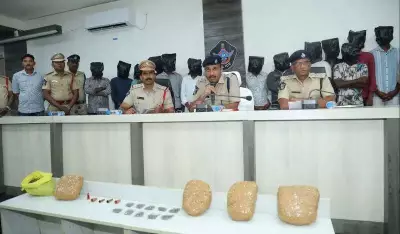
The Karachi Bar Association has launched significant protests against what they term as the "27th Constitutional Amendment" in Pakistan, with legal professionals expressing grave concerns about potential undermining of the Supreme Court's authority. The legal community's unrest centers around perceived threats to judicial independence and the separation of powers within Pakistan's constitutional framework.
Legal Community Rallies Against Constitutional Changes
Legal professionals across Karachi have united in opposition to the constitutional amendments, organizing demonstrations and issuing strong statements condemning the proposed changes. The Karachi Bar Association has taken a leading role in coordinating these protests, arguing that the amendments could fundamentally alter the balance of power between different branches of government.
Lawyers participating in the protests have emphasized their commitment to protecting judicial independence, viewing the constitutional amendments as a direct challenge to the Supreme Court's autonomy. The legal fraternity has expressed particular concern about provisions that might affect the appointment and tenure of Supreme Court judges, potentially compromising the judiciary's ability to function without external pressure.
Specific Concerns About Supreme Court's Role
The protesting lawyers have identified several specific areas of concern regarding how the constitutional amendments might impact the Supreme Court's functioning. Key issues include potential changes to the judicial appointment process, modifications to the court's jurisdictional authority, and alterations to the mechanisms for judicial review of legislative and executive actions.
Legal experts participating in the protests argue that these changes could establish dangerous precedents for future governments seeking to influence judicial outcomes. They emphasize that a strong, independent judiciary remains essential for protecting citizens' fundamental rights and maintaining the constitutional checks and balances necessary in a democratic system.
Broader Implications for Pakistan's Democracy
The protests organized by the Karachi Bar Association reflect wider anxieties within Pakistan's legal community about the health of the country's democratic institutions. Many lawyers see the constitutional amendments as part of a broader pattern that could potentially weaken democratic norms and concentrate power in the executive branch.
The legal profession's response has been notably unified, with bar associations across various districts expressing solidarity with the Karachi Bar Association's position. This collective action demonstrates the legal community's determination to safeguard constitutional principles and maintain the judiciary's role as a check on other branches of government.
As the protests continue, legal experts are closely monitoring how the government responds to the legal community's concerns. The outcome of this confrontation could have lasting implications for Pakistan's constitutional development and the relationship between its different institutions of governance.





